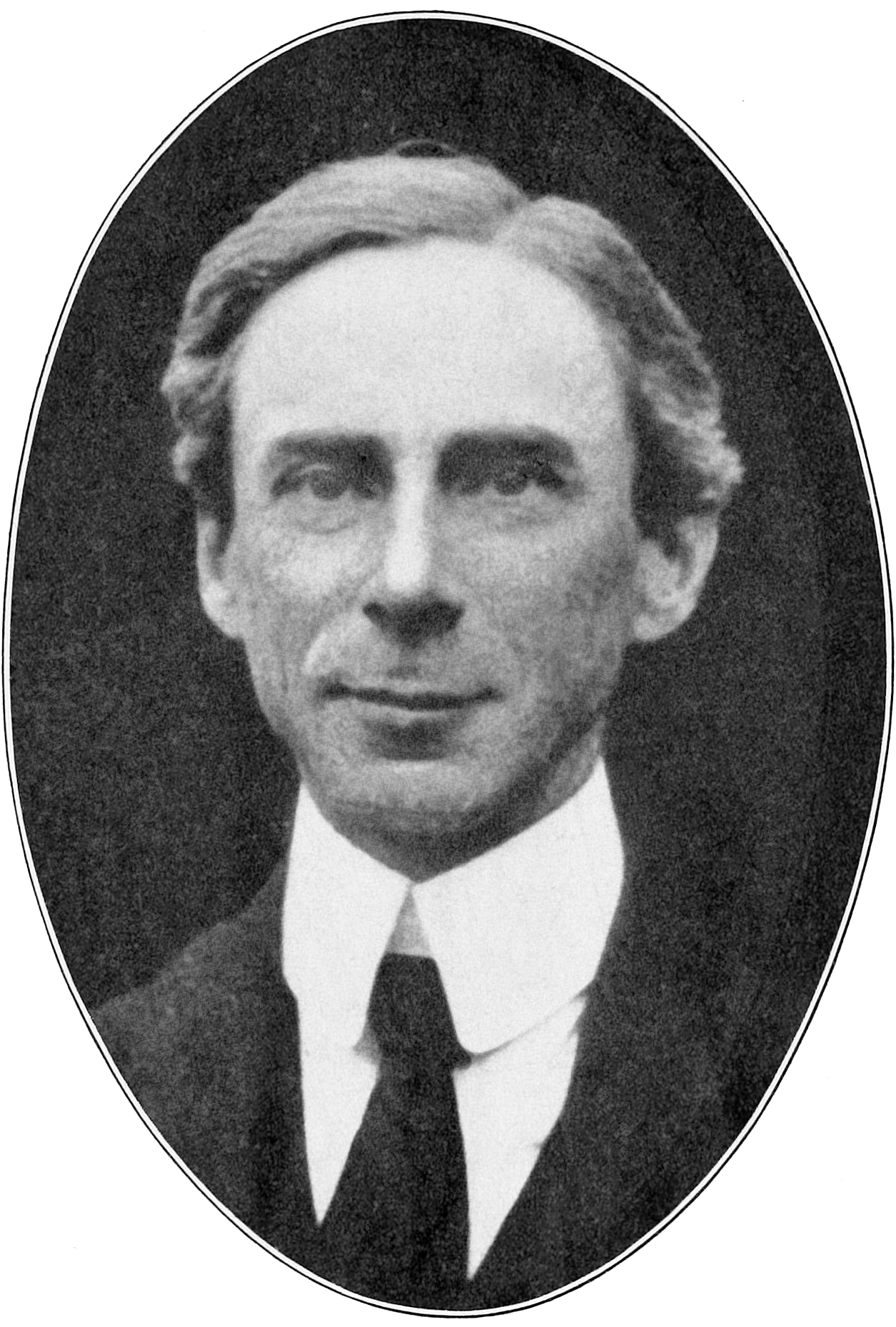Werk
Sceptical Essays
Bertrand RussellWarum ich kein Christ bin
Bertrand RussellBertrand Russell Berühmte Zitate
Zitate über Menschen von Bertrand Russell
Was für den Sozialismus spricht. In: „Lob des Müßiggangs“, dtv, München 2006. S. 150. Aus dem Englischen von Elisabeth Fischer-Wernecke
("The world is full of idle people, mostly women, who have little education, much money, and consequently great self-confidence." - In Praise of Idleness and Other Essays (1935). Chapter VII: The Case for Socialism http://www.ditext.com/russell/cs.html, 4. The Unemployed Rich
zitiert bei Richard Dawkins: Der Gotteswahn. Ullstein Verlag, 2007, ISBN 3550086881. Übersetzer: Sebastian Vogel. S. 74. Siehe auch w:Russells Teekanne
("Many orthodox people speak as though it were the business of sceptics to disprove received dogmas rather than of dogmatists to prove them. This is, of course, a mistake." - Is there a God, 1952 cfpf.org.uk http://www.cfpf.org.uk/articles/religion/br/br_god.html.
Zitate über Leben von Bertrand Russell
„Warum ich kein Christ bin“, Szcesny Verlag 1963, S. 15
("I should wish to see a world in which education aimed at mental freedom rather than at imprisoning the minds of the young in a rigid armour of dogma calculated to protect them through life against the shafts of impartial evidence. The world needs open hearts and open minds, and it is not through rigid systems, whether old or new, that these can be derived." - Vorwort zu: Why I am not a Christian. Last philosophical testament: 1943-68, S. 567
Bertrand Russell: Aktuelle Zitate
Bertrand Russell Zitate und Sprüche
„Hat die Religion nützliche Beiträge zur Zivilisation geleistet?“, 1930 erstmals veröffentlicht, in: „Warum ich kein Christ bin“, Szcesny Verlag 1963, S. 39
"The worst feature of the Christian religion, however, is its attitude towards sex — an attitude so morbid and so unnatural that it can be understood only when taken in relation to sickness of the civilized world at the time when the Roman Empire was decaying." - "Has Religion Made Useful Contributions to Civilization?" (1930) positiveatheism.org http://www.positiveatheism.org/hist/russell2.htm
„Die Religion stützt sich vor allem und hauptsächlich auf die Angst.“
„Why I Am Not a Christian And Other Essays on Religion and Related Subjects“, Touchstone 1967, ISBN 0671203231, Kapitel 1, Abschnitt „Fear, the Foundation of Religion“; „Warum ich kein Christ bin“, Szcesny Verlag 1963, S. 35
Original engl.: "Religion is based, I think, primarily and mainly upon fear." - "Has Religion Made Useful Contributions to Civilization?" (1930) positiveatheism.org http://www.positiveatheism.org/hist/russell2.htm
„Hat die Religion nützliche Beiträge zur Zivilisation geleistet?“, 1930 erstmals veröffentlicht, in: „Warum ich kein Christ bin“, Szcesny Verlag 1963, S. 38
"What is true of Christianity is equally true of Buddhism. [The Buddha was amiable and enlightened; on his deathbed he laughed at his disciples for supposing that he was immortal. But] the Buddhist priesthood - as it exists, for example, in Tibet - has been obscurantist, tyrannous, and cruel in the highest degree." - "Has Religion Made Useful Contributions to Civilization?" (1930) positiveatheism.org http://www.positiveatheism.org/hist/russell2.htm
„Wer ein Philosoph werden will, darf sich nicht vor Absurditäten fürchten.“
Probleme der Philosophie (1912), Frankfurt am Main 1967, S. 20
("whoever wishes to become a philosopher must learn not to be frightened by absurdities." - The Problems of Philosophy (1912). Reissued 2001, Oxford University Press. Seite 9.
Gedankenfreiheit und offizielle Propaganda. In: „Wissen und Wahn: skeptische Essays“, Drei Masken Verlag, Berlin 1930
("It is clear that thought is not free if the profession of certain opinions makes it impossible to earn a living. It is clear also that thought is not free if all the arguments on one side of a controversy are perpetually presented as attractively as possible, while the arguments on the other side can only be discovered by diligent search.") Sceptical Essays, Ch. 12: Free Thought and Official Propaganda, books.google https://books.google.com/books?id=9tQsg5ITfHsC&pg=PA127&dq="diligent+search", archive.org https://archive.org/stream/freethoughtoffic00russuoft/freethoughtoffic00russuoft_djvu.txt
Macht. Kapitel 18, 1. Deutsch von Stephan Hermlin, Zürich 1947, PT294 books.google https://books.google.de/books?id=XryJDwAAQBAJ&pg=PT294&dq=Verdienste
Quelle: "The merits of democracy are negative: it does not insure good government, but it prevents certain evils. - Power: A New Social Analysis (1938), Kapitel 18, 1. PT311 books.google https://books.google.de/books?id=uR7NDrA7YFsC&pg=PT311&dq=negative
